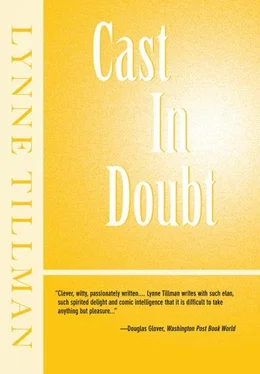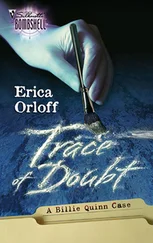Helen is friendly with these boys and may not be aware of their arrangements. Their contact is limited by language, although one of them has told me that he will take her English class as soon as he finishes high school. He says his mother might pay for it. Helen goes with them to the beach. She does not like going there alone. It is a novelty for Cretan men to see young women on their own, as well as lying half-naked on the beach; to them it is always an invitation. Sometimes they just stand and look at her, from a distance. Sometimes they take out their penises to show her. She is frightened by this.
I haven’t the heart to tell her that I probably would be delighted if they did that with me. It would not frighten me. But then I am different from Helen. In many important ways. She may be as promiscuous as I, or more, but that would be in her own feminine manner. This manner seems not to include cooking. We had one lamentable meal which she cooked and we ate on my terrace. Smitty had the good grace not to apologize for it. I don’t believe people should apologize for what they can’t help. Helen professes to having no artistic ability. In any case, she can’t render life as it is or even close to what it is. I am not sure what she is good at, though I am sure she is good at something. I have always been good with words, and wrote terribly smart compositions about military heroes when I was a lad, pleasing my mother but not impressing my father, who would have, in true American fashion, preferred brawn to brain, especially in a boy that age. My brother, older by four years, was his favorite. Instinctively I knew fairly early that I would never please my father and gave up before beginning, really. I realized he wouldn’t ever love me, and I clung to my mother beyond reason — though I don’t know why I put it quite like that — and she adored me, even when I came to despise her a little. As I grew older and I outgrew her, I was less in need of her protection, such as it was. Nevertheless, when I was at home, I always took her side; my brother, my father’s. I don’t know how Helen feels about her paterfamilias or materfamilias.
Helen has reminded me there is no word in English for man-hating, no equivalent to the Greek misogyny. This bothers her but she is careful not to seem as if it really matters to her. I appreciate her sangfroid, because I would hate to have to minister to her. She never makes this necessary, however, although from what I hear from Yannis, much occurs in her life, as if she were a contemporary Colette. I wonder what that woman was truly like. I’d rather know Jean Genet, but I don’t think he’d be interested in me.
I walk to the restaurant where my usual table awaits me. Christos brings a bottle of wine and opens it with a flourish. Kali spera , Horace, he exclaims. We exchange pleasantries. I look up and see Helen on her terrace. It’s just after five. The fishermen are doing what they do with their boats and talking among themselves. Their faces are brown and their skin, even from this distance, seems thick as hide. I’d like to pinch one of their cheeks, to see if he feels it. To me these men are impervious. I pour myself a glass of wine. The wine is cold and dry, much needed after a frustrating afternoon of work on Household Gods. It is so difficult to understand the mind of a woman of that time, perhaps a woman of any time. Like Helen. Though my Helen is, in so many ways, sympathetic and, of course, present. But trying to conceive and fashion the sense and sensibility of a nineteenth-century feminist abolitionist temperance reformer, and fold her character into a modern novel — it’s Great-Aunt Martha who drives me to drink.
That miserly Roger has taken a table near me, not with me; we are cautious about possible presumptions. Yannis hardly glances at him, the other American with whom he once lived, very briefly. Roger sucks on his cigarette, looks toward Helen’s house, and through his small teeth hisses a distasteful remark about her. I declare him a Nelly, and he waves me off with his hand, as if it were possible to banish me. He is not alone in his contempt for Helen. Of the expatriates I am the only one who spends time with her. She doesn’t seem to mind and has indicated that she finds the others very uncool, which is how she put it. When someone speaks like that, uses words such as cool and so forth, I think of the forties and fifties and clubs in New York and Boston where I heard jazz played by excellent musicians, Negro musicians, who seemed indifferent to their white audiences. Black musicians. When it came into existence not so long ago, the phrase “Black is Beautiful” delighted me. It still does. Black is beautiful.
Roger shifts in his chair and pretends to write in his journal. We are, unfortunately, almost all of us here, writers. This is a curse at times though relatively amusing at others, especially after I’ve had a few glasses of wine. Roger had a minor success with his first novel, set in the South, a coming-of-age drama that elided his homosexuality, masking it through other characters that the cognoscenti recognized. Then he received a good advance for his next, which is what he’s still working on, and left the States. Years ago. Even in this place he lives somewhat in the closet. I don’t know why he is here. The Greeks don’t care, not about us. I’ve even seen him flirting with Helen as if he might actually want her.
It was late one night in Christos’ restaurant and one of the waiters had taken out his guitar and was playing bouzoúiki music. There were very few people about. Bouzoúki music has an insistent, demanding sound, and its nervous rhythm set the tone that night. Roger bowed to Helen and fairly lifted her out of her chair, waltzing her around the room while gazing ardently into her eyes as he moved her this way and that. It was quite a performance. That was in the first month she was here.
I don’t know if Helen was taken in. He can be charming and has the foulest mouth. Again Roger says something about Our Miss Helen and The Sailors. Roger gets so Tennessee Williams, more Tenn than Tenn. He’s not from the Deep South, but from North Carolina only, yet he taunts me with his Southern drawl. When he feels he’s scored a point — Roger surely keeps score — his bright blue eyes flash triumphantly. His eyes are much more beautiful than my own, which pale by comparison. So bright shines our Roger. Oh, shut up, I hiss back. Tsk, tsk, Roger responds. I close my eyes, like a turtle in the sun, and turn away to show my disdain. But now Alicia arrives and walks our way. Her presence has an immediate salutary effect. Around Alicia, we keep our gloves on, so to speak.
Alicia has had affairs with a few important literary men, who have deigned to write about her, one salaciously, in fact, and though well past fifty, I’d say, Alicia moves like a much younger woman. She is subtly sensual. Her operatic past surrounds her, and she’s dramatic without being oppressive. A tall, athletic woman, Alicia nevertheless gives the impression of fragility, a fragility that is generally contradicted by her rough-minded, though gently spoken, discourse. Alicia nearly escapes the categories I ordinarily place people in. Her conversation is often elliptical, and like Roger, she can be sharp-tongued; but she is never as vulgar as he. Alicia is suspicious of Helen, whom she’s had for tea and to whom she has offered piano lessons, should Helen want them.
I’d like to find out why Alicia suspects Helen and what she suspects her of. But not in front of Roger. And why has Alicia offered Helen music lessons? What happened at that tea?
The Maori love, Roger is saying, just as we do. The aborigines love as we do. Love, Roger is saying, is universal, whatever form it may take. Alicia interjects liltingly, Yes, dear, but who are we and what do we love? Roger’s cunning eyes take her in joyfully, as if they are, and he is, eating her up. Then he clasps one of her pearlescent hands in his and kisses it. Why, Alicia, we love each other, he says. I love you, dear. Alicia taps the filtered end of her Greek cigarette. She taps it incisively, as if to signal that she is about to make her point. Ever so distinctly she whispers, Roger, I haven’t a clue what love is. Do you want to teach me? Alicia calls his bluff every time, but so gracefully, Roger cannot figure out how best to respond. He has never reviled her with his wicked tongue. I am sure he would like to. Alicia’s mouth asserts her intelligence, curving into a calculated smile that sets Roger back a drink or two.
Читать дальше












